Here’s a couple of the highlights from the April 3 meeting of the Buncombe County Board of Commissioners.


Here’s a couple of the highlights from the April 3 meeting of the Buncombe County Board of Commissioners.

Where once piles of junked cars were stacked by the French Broad River, crews have been digging up concrete remnants and debris — the first step toward turning the old EDACO junkyard into the Karen Cragnolin Park. (photo courtesy of RiverLink)

The Buncombe County Board of Commissioners’ Tuesday, April 3, meeting will feature a presentation on the “Landfill Gas to Energy Project.”
In this edition of Warren Wilson College’s “Swannanoa Journal,” Sandy Pfeiffer muses about paddling the Swannanoa River, an adventure that includes a near-disaster near a fallen tree, advice from land-bound bystanders, an encounter with a blue heron and assistance from a good samaritan.

The evening sky holds many wonders — but few are as wondrous as getting to see some of the brightest objects in our sky all clustered together. Such was the case last night when the crescent moon was accompanied by the brightest planets in our sky along with the constellation Orion and the bright star Sirius — an amazing site that you may be able to catch again this evening if you look to the west after the sun sets.
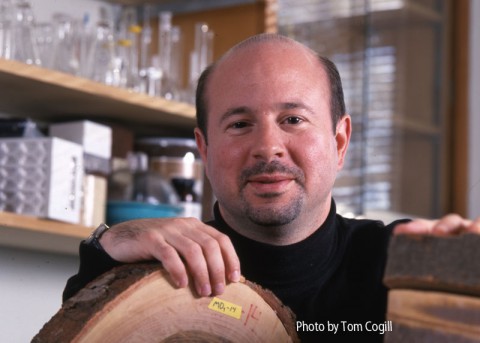
Noted climate scientist Michael Mann will speak Tuesday, April 3, at UNCA; Nobel Prize-winning researcher will discuss his new book, “The Hockey Stick and the Climate Wars.”
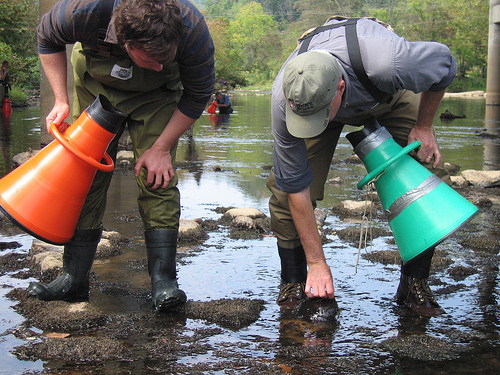
“If you are an angler, boater, fish or bug, the Tuckasegee River is better with the Dillsboro Dam removed,” says U.S. Fish & Wildlife Service biologist Mark Cantrell. (photo by Gary Peeples, Asheville Field Office, USFWS)
North Carolina Wildlife Resources Commission officials confirm that white-nose syndrome — a disease that’s led to the death of millions of bats in the eastern U.S. — has been found in an abandoned mine in Haywood County. It’s the fifth county in North Carolina to confirm a case of the disease.
What is sustainable urbanism? It’s “about looking at the cities that we live, work and play in, and working with the existing built environment to create more sustainable opportunities,” says Warren Wilson College alumnus Chad Riley.
In this edition of Warren Wilson College’s “Swannanoa Journal,” Warren Wilson College Professor Catherine Reid discusses learning that she lives in the Ross Creek watershed. What does it mean, living in a watershed? What area does it cover, where does it drain, and how do you educate students about watersheds and their significance.
Biologists at Great Smoky Mountains National Park have confirmed that both a tricolored and a little brown bat found in a park cave tested positive for white-nose syndrome.
As we woke up this week to the vernal equinox and the first full, official day of spring, many across Western North Carolina are dealing with an early spring that seems to have gone haywire.
In a letter to an attorney representing Scenic NC in their lawsuit against the state for new rules allowing more clear-cutting around billboards, City Attorney Bob Oast says he’s concerned about the rules, but asks for more time to decide if the city should join the case.
In this letter, City Attorney Bob Oast responds to a request that the city of Asheville join a lawsuit against new rules allowing increased clear-cutting around billboards
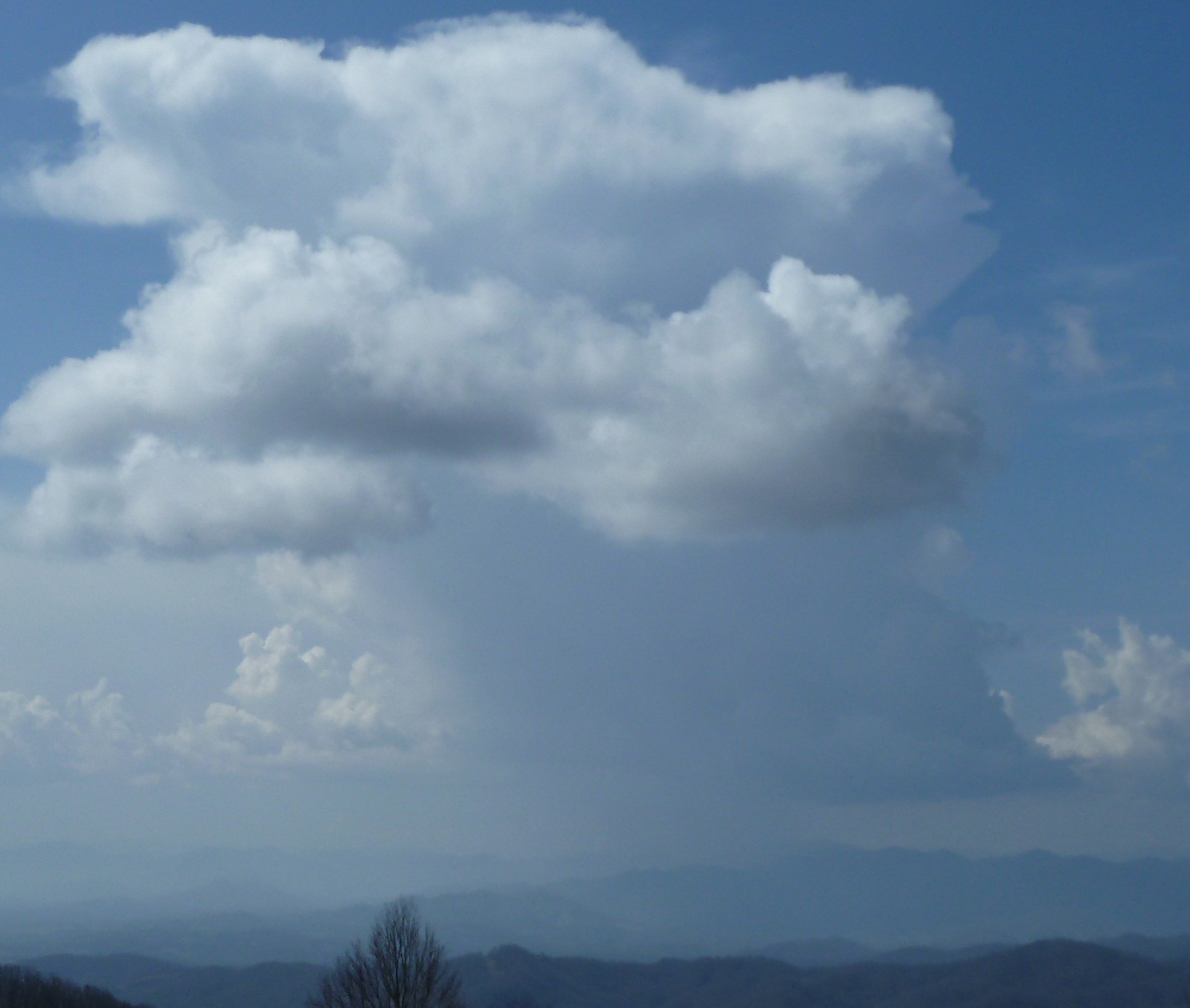
For many of us in the mountains, it seems that spring has sprung almost overnight as trees are flowering, birds are singing and allergies have hit full force (cough, cough). Another sure sign of spring: Scattered thunderstorms that pop up in the heat of the sun.
For the second Asheville City Council meeting in a row, the issue of the city’s possible involvement in a lawsuit against new rules allowing more clear-cutting around billboards was a major topic. This time, Council went into closed session to discuss its legal options for joining the fray.
Four new Southeast properties have been named Superfund sites by the U.S. Environmental Protection Agency. The CTS of Asheville site off Mills Gap Road is one of them.
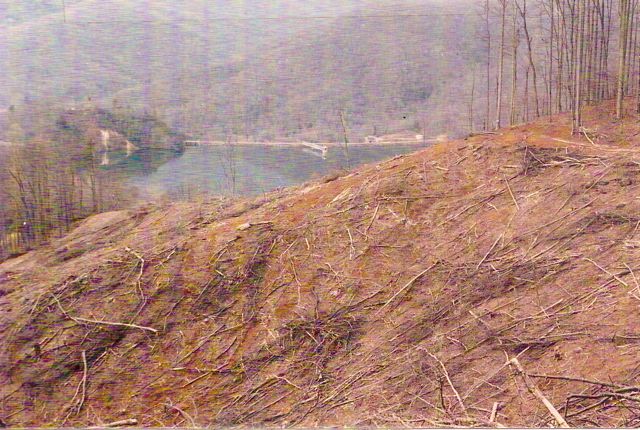
In a March 12 Asheville Citizen-Times article, Rep. Moffitt suggests, “Selective timbering under the auspices of a professional arborist is the best thing for a watershed.” Moffitt chairs a state committee that’s considering stripping the city of Asheville of the water system, creating a new regional authority to own and manage the system, handing it off to the Metropolitan Sewerage District, or leaving things the way they are. Here’s a flashback at the controversy over a late-1980s clear-cutting contract in the 21,000-acre North Fork Reservoir watershed.
(A file photo of clear-cut logging at the North Fork Reservoir in the late 1980s.)
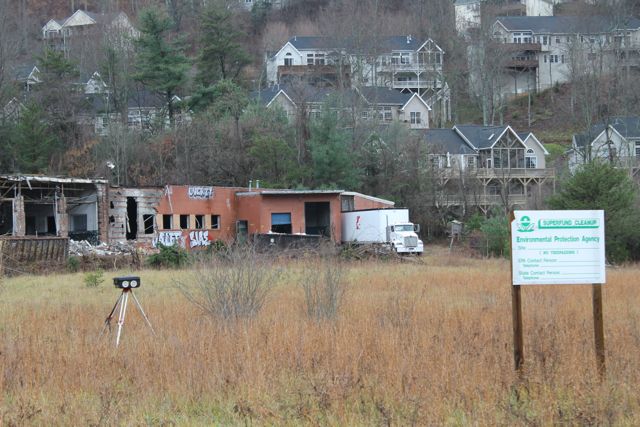
The building was demolished last fall, but residents keep pressing for a real clean up at the former CTS of Asheville site on Mills Gap Road.

In her essay on the hazards attending genetic engineering, author Barbara Kingsolver raises the question: “What will it mean for a handful of agribusinesses to control the world’s ever-narrowing seed banks?” Asheville’s Sow True Seed has an idea, and they’re ready to fight back. (Cathryn Zommer shows off Sow True Seed’s “Harvest Goddess” street puppet, above.)
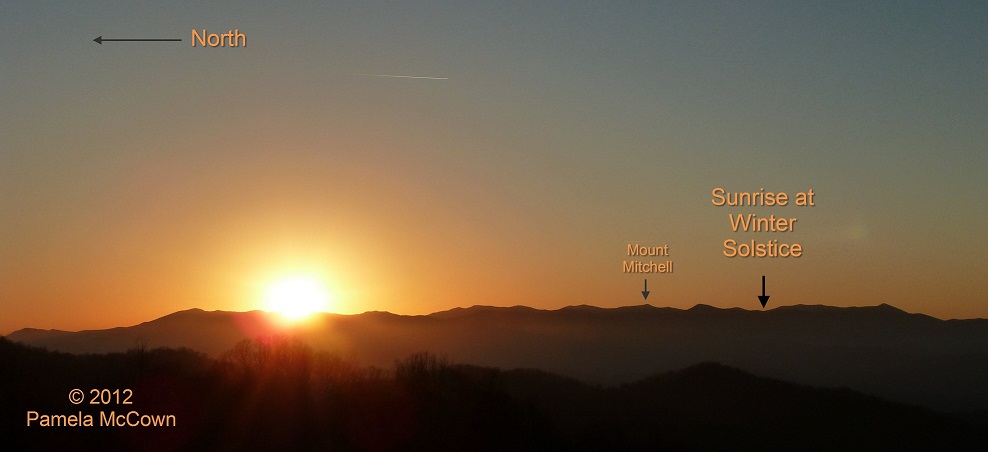
As we say goodbye to February and hello to the coming spring — you’ll notice how changes to our environment seem to happen very quickly this time of year.